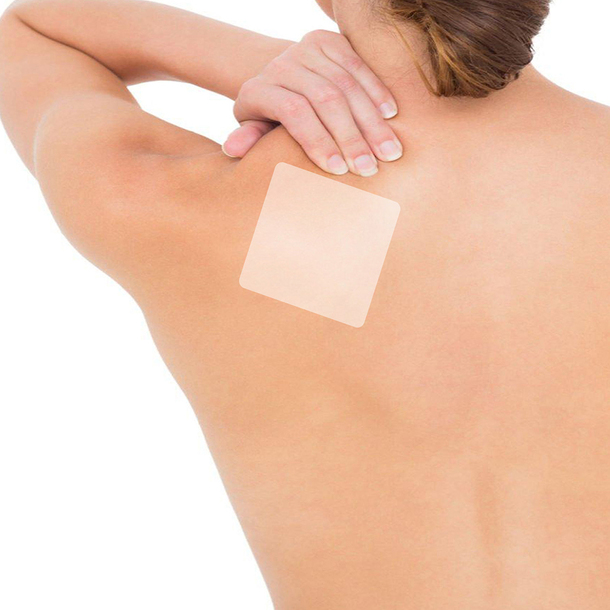Best Multivitamin Support for Women With PCOS or PMS
 |
| Best Multivitamin Support for Women With PCOS or PMS |
For many women, hormonal health isn’t just a monthly inconvenience—it’s a constant battle. Conditions like PCOS (Polycystic Ovary Syndrome) and PMS (Premenstrual Syndrome) can disrupt daily life with symptoms like mood swings, fatigue, acne, irregular periods, and painful cramps. While medications and lifestyle changes play a crucial role in managing these symptoms, nutritional support can often make a world of difference.
If you’ve been feeling off-balance, overwhelmed, or stuck in a hormonal loop, you might wonder whether adding a multivitamin for womens could offer real relief. In many cases, the answer is yes—but the key lies in choosing the right one. Let’s explore how multivitamins can support women managing PCOS or PMS and what to look for on the label.
Why Nutrition Matters for Hormonal Health
Hormones don’t function in isolation—they rely on a steady stream of nutrients to be produced, regulated, and balanced. When your body doesn’t get the essential vitamins and minerals it needs, it can lead to disruptions in estrogen, progesterone, insulin, and other vital hormones. This is especially true in conditions like PCOS, which is linked to insulin resistance and androgen dominance, and PMS, which is driven by cyclical fluctuations.
In short, your hormonal system is like a symphony—and nutrition is the conductor. Without it, everything feels out of tune.
How a Multivitamin Can Help With PCOS and PMS
A thoughtfully formulated multivitamin for womens can support hormone balance, reduce inflammation, ease menstrual symptoms, and even improve energy levels and mood. It’s not a cure, but it can be an essential tool in your wellness routine—especially if you struggle to get certain nutrients from diet alone.
Here’s how the right vitamins and minerals can help with specific PCOS and PMS symptoms:
Mood swings: B vitamins and magnesium support neurotransmitter health
Fatigue and brain fog: Iron, B12, and vitamin D help with energy production
Acne and oily skin: Zinc helps regulate androgens and supports skin repair
Cramps and bloating: Magnesium eases muscle tension and reduces water retention
Irregular cycles: Inositol (a B-vitamin-like compound) may help regulate ovulation in PCOS
Nutrients That Matter Most for PCOS and PMS
1. Magnesium
Magnesium is a hormonal multitasker. It helps reduce PMS symptoms like irritability, cramps, and headaches. For women with PCOS, magnesium also plays a role in blood sugar regulation and can ease anxiety—both of which are common concerns.
2. Vitamin B6
Known for its role in mood regulation, B6 supports serotonin production and helps reduce symptoms like irritability, sadness, and breast tenderness during PMS. It also helps with progesterone production, which is often low in women with hormonal imbalance.
3. Inositol
Though not always included in standard multivitamins, inositol deserves attention. It’s been shown to improve insulin sensitivity and support ovarian function in women with PCOS. Some multivitamins for hormonal balance now include this in small amounts.
4. Zinc
Zinc supports hormone regulation, reduces inflammation, and helps control excess androgens—a major culprit behind acne and hair growth in PCOS. It also supports healthy ovulation and immune balance.
5. Vitamin D3
Deficiency in vitamin D is common in women with PCOS and can worsen insulin resistance and mood swings. Supplementing with D3 (not D2) is ideal for better absorption and effectiveness.
6. Calcium
For women with PMS, calcium has been shown to reduce symptoms like fatigue, cravings, and mood changes. It also plays a role in estrogen metabolism and supports strong bones—especially important if periods are irregular or absent.
7. Iron
Heavy periods caused by PMS or hormonal imbalances can lead to low iron levels. A mild dose of iron in your multivitamin for womens can help prevent fatigue, dizziness, and hair thinning.
8. Omega-3s or Anti-inflammatory Additions
Some advanced formulas include omega-3 fatty acids or turmeric, which help reduce inflammation—a common factor in both PCOS and PMS symptoms.
What to Avoid in a Hormonal Health Multivitamin
Megadoses of Vitamin A – Too much can actually disrupt hormonal balance
Unnecessary fillers or synthetic dyes – These may cause sensitivities or gut distress
High calcium with iron – These minerals can compete for absorption, so balance is key
You don’t need a flashy supplement with every trending ingredient—what matters most is smart formulation, proper dosages, and consistency.
Realistic Expectations: What to Expect and When
You won’t feel better overnight, but give it a few weeks. With daily use, many women report improvements such as:
More predictable cycles
Fewer cravings and mood swings
Reduced bloating and cramps
Clearer skin and better energy
Fewer blood sugar dips throughout the day
Keep in mind, multivitamins are part of the puzzle. Sleep, stress management, movement, and dietary choices are just as important. That said, they can create a stronger foundation for everything else to work better.
For even more insight tailored to your health goals and life stage, check out our guide on Multivitamins for Specific Women's Health Needs.
Conclusion
If you're managing PCOS or struggling with monthly PMS symptoms, you're not alone—and you’re not powerless. While no supplement can completely erase hormonal fluctuations, the right multivitamin for womens can offer real, measurable support.
It’s about giving your body the tools it needs to regulate, rebuild, and restore balance over time. Choosing a well-rounded, hormone-supportive multivitamin—and pairing it with intentional lifestyle habits—can help you feel more in control of your health and more in sync with your body.
Because when your hormones are supported, everything else—from your skin to your mood to your energy—starts to feel a little more manageable.



Comments
Post a Comment